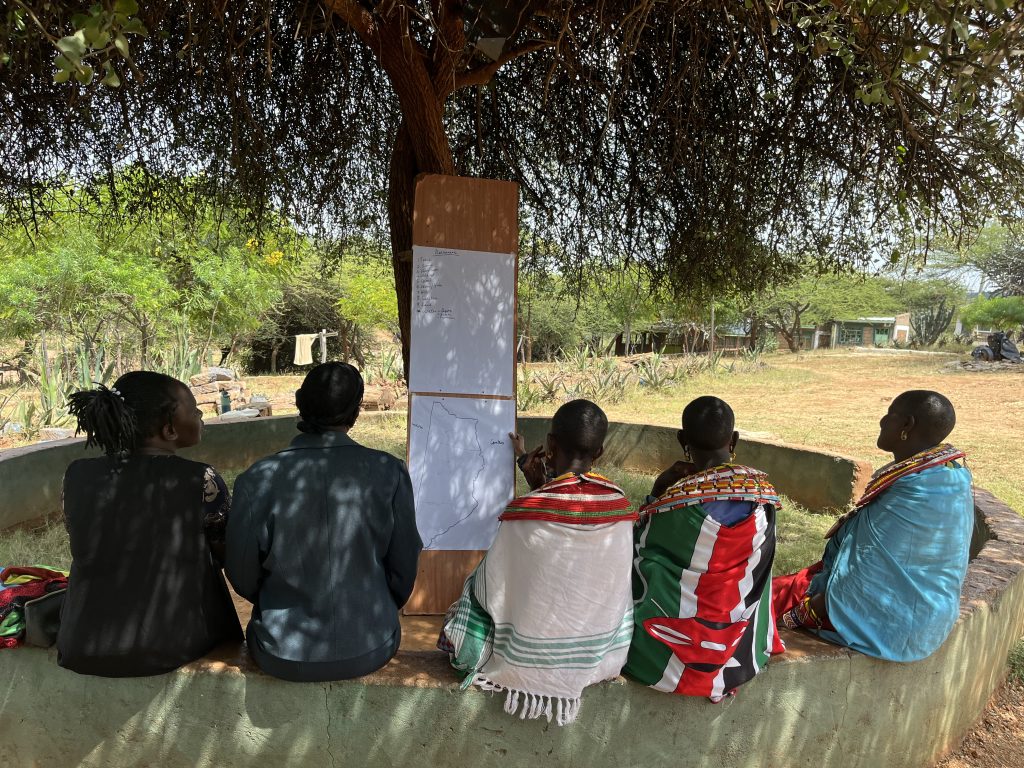Nearly 70% of Kenyans depend on rainfed agriculture to sustain their livelihood. But in areas with limited government reach and increased drought, how do pastoralists share their water and pasture?
Sarah Posner, a Ph.D. student in geography at CU Boulder and Institute of Behavioral Science (IBS) research assistant, studies pastoralist societies and food security. Her combined $20,585 from the NSF HEGS-DDRI and CARTSS grant awards will advance her research on local institutions and their influence on Northern Kenyan livelihoods.
“This project investigates the role of local institutions, both formal and informal, in managing natural resources and related conflict among pastoralists,” Posner explains. “Local institutions are key for pastoralist societies in arid rangelands operating in the periphery of weak states where inter-communal conflict is endemic and often disruptive to livelihoods.”
The grants will help Posner collect primary data using a mixed methods approach:
- Posner will employ local personnel to assist in data collection, including conducting surveys, interviews, and facilitating Focus Group Discussions (FGDs).
- Over the summer, Posner will hire a team of local enumerators to conduct a household survey.
- Posner will then contextualize the survey results with key informant interviews and focus group discussions.
Posner’s study will focus on Isiolo County, an ecologically and culturally diverse region within the Arid and Semi-Arid Lands of Northern Kenya. The county is home to four prominent pastoralist societies: the Samburu, Turkana, Borana, and Somali. These societies have varying institutional arrangements to manage water and pasture.

“The study… will predict the social outcomes of local institutions (cooperative or conflictual) across these four pastoralist communities. Results from the study can be generalized to other arid rangelands across East Africa and pastoralist contexts to improve natural resource management and violence prevention,” says Posner.
Posner’s emphasis on hiring local personnel and utilizing mixed methods is intentional. She travels to Kenya each year to maintain her local networks and believes local ecological knowledge would greatly benefit Western researchers. When asked to give advice to future grad students, Posner underscored getting to know the locals.
“Take the time to understand community needs in the areas you are working in, they can help formulate meaningful research questions you wouldn’t otherwise have thought of and allows for community buy in,” Posner advises. “If you aren’t invested in the areas you work in, why would they invest in you and your research?”
One of the main reasons Posner chose human geography is due to the wide variety of tools it employs to study human-environment interactions. The discipline greatly emphasizes field work, and Posner’s advisor, John O’Loughlin, has often encouraged her to get her “boots muddy”.
After achieving her PhD, Posner hopes to continue investigating rural agrarian livelihoods and how natural resources are managed to attain food security.
“My goal is to utilize the tools and skills I have attained through my Masters and PhD research here at CU Boulder to advance understandings of how humans interact with their environment in the era of the Anthropocene, especially for those most vulnerable to climate change impacts,” says Posner.
Thanks to her NSF and CARTSS grants, Posner will make an immense impact on how Kenyans and other pastoralist communities can effectively and equitably manage natural resources.
About the Awards:
- The NSF Human-Environment and Geographical Sciences Program – Doctoral Dissertation Research Improvement HEGS-DDRI) Awards supports scientific research on the nature, causes, and consequences of how people and environmental processes are spatially distributed.
- CU Boulder’s Center to Advance Research and Teaching in the Social Sciences (CARTSS) grant is available to both faculty and graduate students conducting research in the social sciences.
